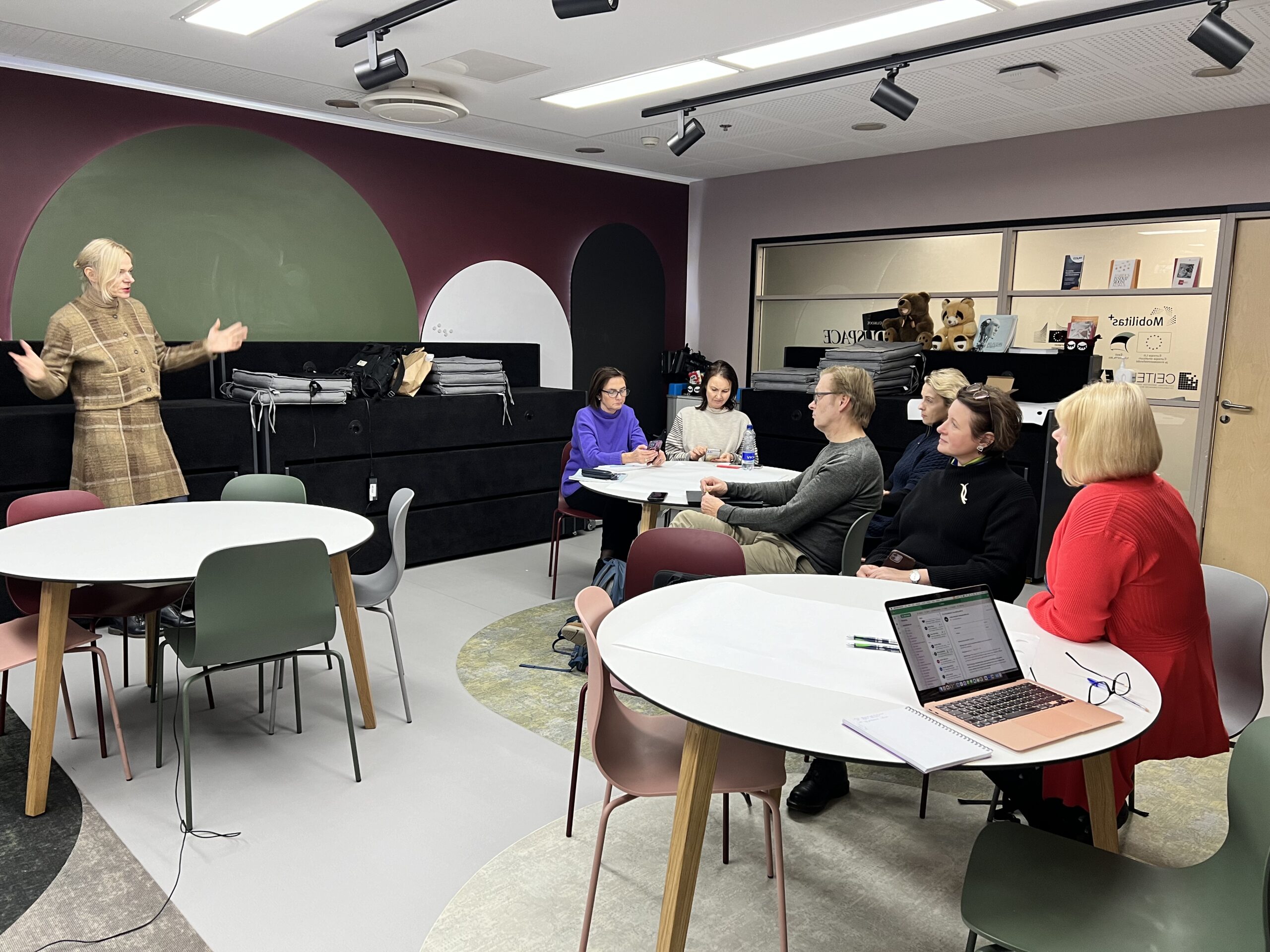Scientists from Tallinn University, under the leadership of the School of Educational Sciences, have initiated the knowledge transfer project “EdTech Talents.” The aim is to create research profiles for university researchers, leading to the development of collaboration models that will assist in creating evidence-based educational services and products.

Over six months, four workshops will be conducted with the group members to gradually raise awareness of which skills lead to specific target audiences and how to offer them proactively. The first workshop began with the mapping and analysis of personal skills, identifying which educational services can be provided using these skills.
In the next workshop, potential ideas for educational services will be evaluated in collaboration with representatives from educational technology companies.
Larissa Jõgi, the head of the interdisciplinary research group ÕPPES at the School of Educational Sciences, agreed to participate in the project and experiment with the approach to the researcher’s knowledge transfer profile.
According to Larissa, the potential of her skills as a research group leader lies primarily in interdisciplinary work.
“Educational research conducted for interest groups today requires different perspectives from researchers in various fields,” confirms Larissa. She adds that competence-based researcher profiles make it easy for potential clients of educational services to incorporate research-based activities from the university. That is because such services usually involve the entire research group, highlighting the need for research groups to clarify their profiles.
Janika Leoste, the leader of the European Horizon knowledge transfer project “EdTech Talents,” states that articulating one’s value is not easy for naturally modest researchers. However, this is the only way to provide intellectual services for society.
Creating a virtual talent community of researchers is a service that Janika Leoste, in intensive collaboration with Ugljesa Marjanovich, a professor at the University of Novi Sad in Serbia, is actively developing. According to Professor Marjanovich, Serbian researchers are ready for active knowledge transfer, but initiating it requires not only the goodwill of researchers but also organizational changes to make this competence easy to order from the university.
